If you're like most people, you probably don't think about your car's engine until there's a problem. And by then, it may be too late.
You need to know the signs of engine trouble so that you can take corrective action before it's too late.
This article will discuss the top 15 common symptoms of engine problems. Keep an eye out for them, and you'll be able to get the repair work done before your car breaks down completely.
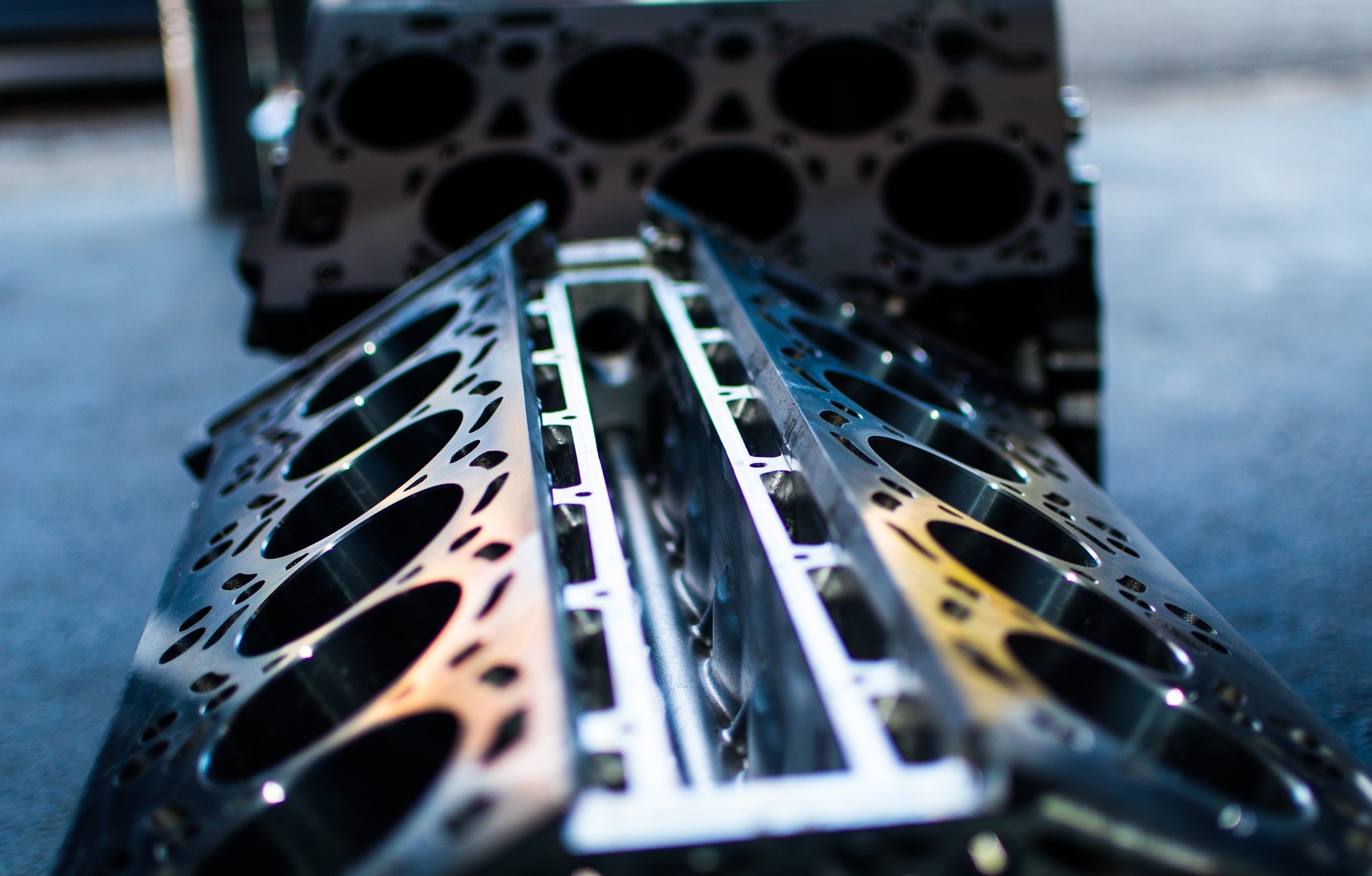
What is an engine, and what does it do?
The engine is the heart of your car. It turns fuel into motion by converting chemical energy (from gasoline) into mechanical energy (energy that makes your wheels turn).
Engines come in all shapes and sizes, but they all do the same thing: convert one form of energy to another.
There are different types of engines :
- Internal combustion is the type of engine used by most cars and trucks (gas and diesel). They burn gasoline or diesel fuel to produce power.
- Gasoline–engines that run on unleaded gas, not diesel.
- Diesel–engines that run on diesel fuel, a type of oil.
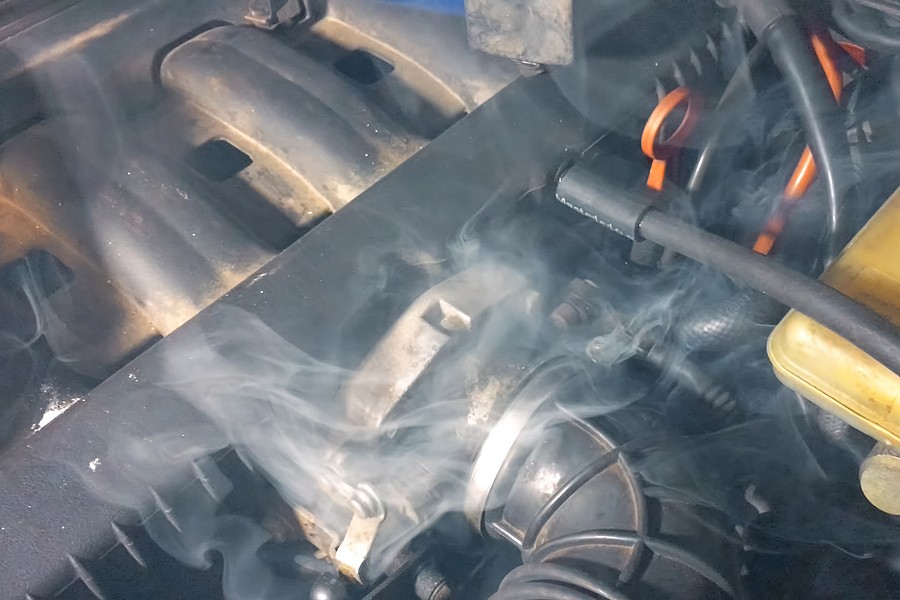
How To Know When You Need Engine Repair? 15 common symptoms!
Despite your engine's type, it's not rare to deal with engine problems during the lifetime of your vehicle. Let's take a closer look at “how to tell when you need engine repair?” read on for the top symptoms, repair options, and repair costs:
#1 overheating: $1000-$2000
One of the most common symptoms of a car needing engine repair is overheating. This symptom will present itself when your engine has difficulty keeping up with cooling itself.
You may notice that your car's temperature gauge is higher than normal or that the engine warning light has come on. You may also notice that your car seems to be running more quickly and loudly, and there may be steam coming out of the hood of your car.
#2 lack of power: $300-$800
The loss of power is very common, and it can be concerning if you don't know what's causing it.
First, make sure that your gas cap has not come loose (a quick check to see if there's a gap underneath the cap may tell you). If this is not the case, you need to check your vehicle's air filter.
If this turns out to be a problem, it'll boost the power of your car, and repair costs will run about $300. On the other hand, if this proves not to be the case, then you may have a more serious issue with your engine.
Looking into an engine tune-up is usually a good idea in these cases–repairs can cost from $300-$800 depending on how significant the damage is.
#3 knocking: $500-$1000
Worn-out parts usually cause a knock in your engine.
The most common symptom of this type of problem is a sound like “knocking or pinging” coming from the valve area, which you may notice vibrating as you drive. However, if it persists for more than 10 seconds, this could be a sign of engine damage that can be serious and expensive to address.
#4 smoking: $1500-$2000+
Another common indication that you need engine repair is excessive smoke coming out of your exhaust pipe.
If soot and other impurities are present in the oil, it indicates significant wear and tears on critical components. Again, this will need to be addressed by a professional right away.
#5 burning oil: $50-$100
If you notice that your engine is using up oil, especially if it's using an excessive amount of it, then this can be a sign that you need engine repair.
The most common cause of the burning oil symptom is worn-out piston rings–it's possible to fix this with some relatively inexpensive work (repairing the rings). Still, the more likely cause for this problem is major internal damage. If that's the case, your car will need more extensive and expensive repairs to address the issue.
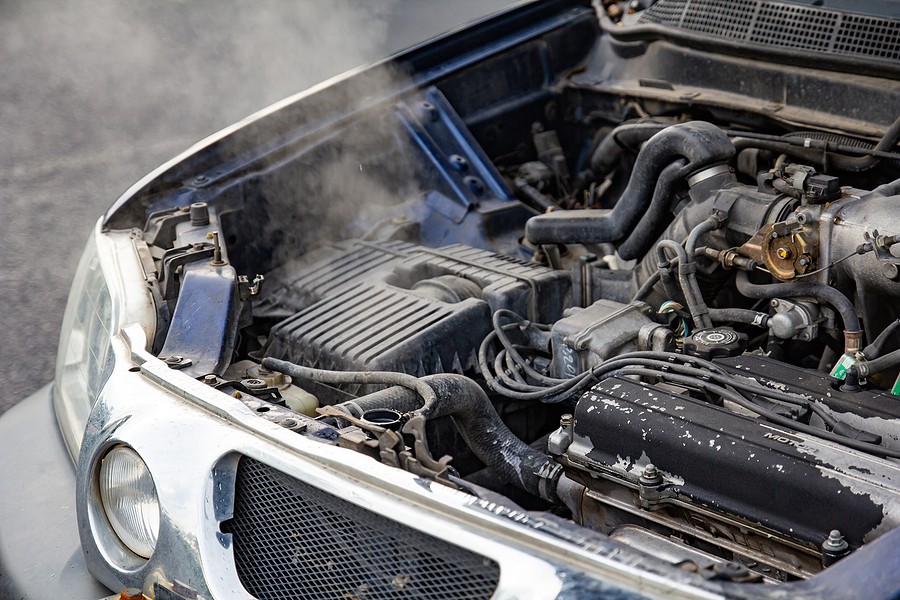
#6 trouble starting: $75-$300+
If you're finding it difficult to start your car in cold weather or after ten or more minutes of driving, this is a common indication that you need engine repair.
Older engines are most likely to have trouble with this problem, but it can happen to any vehicle. The most common cause is low battery power–you may have old or worn-out batteries or alternators in your car.
This is one of the most basic engine problems to fix–repair costs will be around $75 if you handle this yourself, but professional repairs could cost up to $300+.
#7 pinging: $1500-$2000+
Pinging occurs when your car's engine is running poorly because there isn't enough air getting into the combustion chamber or fuel isn't getting ignited properly (the engine is running “lean”).
If you see pinging on your car's gauges, it could mean that the air/fuel mix is very high in unburned fuel. The most common causes of this problem are dirty air filters and tuned-up engines with larger than normal cylinders or pistons. This certainly isn't a cheap repair–repair costs will run from $1500-$2000+.
#8 loss of power: $300-$800
The loss of power is very common, and it can be concerning if you don't know what's causing it.
First, make sure that your gas cap has not come loose (a quick check to see if there's a gap underneath the cap may tell you). If this is not the case, you need to check your vehicle's air filter.
If this turns out to be a problem, it'll boost the power of your car, and repair costs will run about $300. On the other hand, if this proves not to be the case, then you may have a more serious issue with your engine.
Looking into an engine tune-up is usually a good idea in these cases–repairs can cost from $300-$800 depending on how significant the damage is.
#9 overheating: $100-$500+
An overheated engine is a sign that something is moving too fast or too slow, isn't operating efficiently, or there's not enough lubrication present to help the parts of your engine move smoothly–this will eventually lead to permanent damage and costly repairs.
The most common causes of an overheated engine are either a defective thermostat (which controls the coolant) or serious internal problems with your car's cooling system. Repair costs can run anywhere from $100-$500+, depending on what's causing your car to overheat and whether you handle the problem yourself or take it into a shop for repairs.
#10 delayed ignition or misfiring: $150-$450
Delayed ignition occurs when your engine doesn't ignite quickly enough, while misfiring happens when the engine is firing incorrectly. Both of these issues are caused primarily by faulty spark plugs.
If you notice either of these problems, it's recommended that you replace all the spark plugs in your car. This is a bit of an inconvenience, but the cost to repair this problem will run between $150-$450.
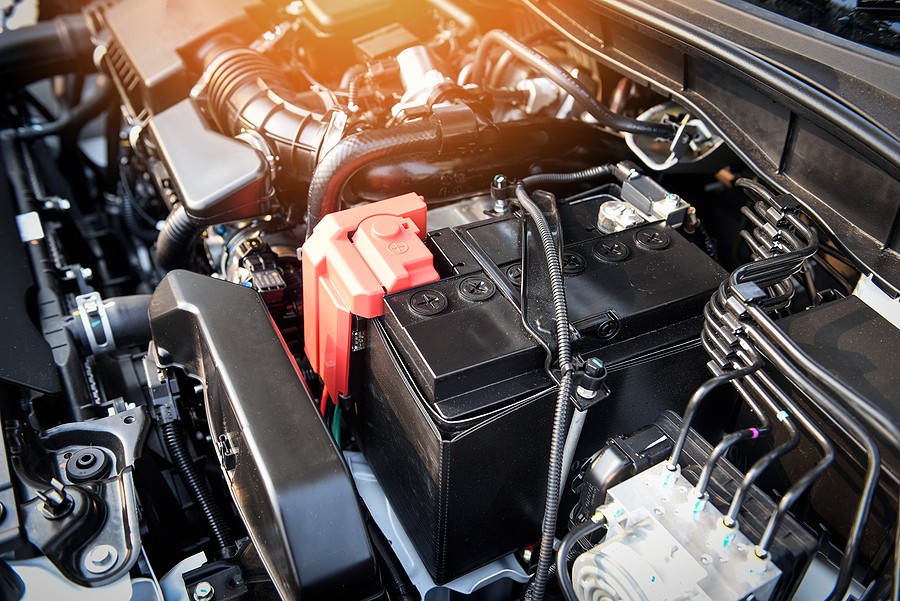
#11 no blue smoke: $100+
Blue smoke exiting the exhaust pipe is known as “exhaust puff.” This type of engine problem occurs when excessive oil is burned inside the cylinders during the combustion process. Again, it's recommended that you get to a mechanic as soon as possible if this starts happening because it can become expensive very quickly.
Repair costs will be around $100+, but the problem may continue to get worse and could eventually require complete overhauls (replacing pistons and other parts) of your engine.
#12 puddles of water: $200+
The water inside your car is almost always a sign that there's either a cracked or busted hose, which means you need to have it repaired as soon as possible. Clogged drains may also cause it–this shouldn't be too costly to repair, but check your hoses first before you schedule an appointment with your mechanic.
Repairs will cost somewhere around $200+.
#13 grinding or growling noises: $500+
Noises coming from your engine are often a sign that there's internal damage to one of the engine gears, bearings, or other important parts. Unfortunately, replacing these parts can be costly–repair costs can run anywhere from $500+.
#14 overheating and no heat: $1000+
This is a serious issue that can indicate serious internal damage to your engine. You should have it looked at as soon as possible if this happens.
Repair costs will be expensive–$1000+. Get it looked at immediately if you notice this problem.
#15 whines, squeaks, or squeals: $200+
Whining or squeaking noises coming from your engine are generally caused by loose belts and hoses. If you hear this type of noise, it's recommended that you replace any broken parts immediately. Repair costs will be anywhere from $100-$500+.
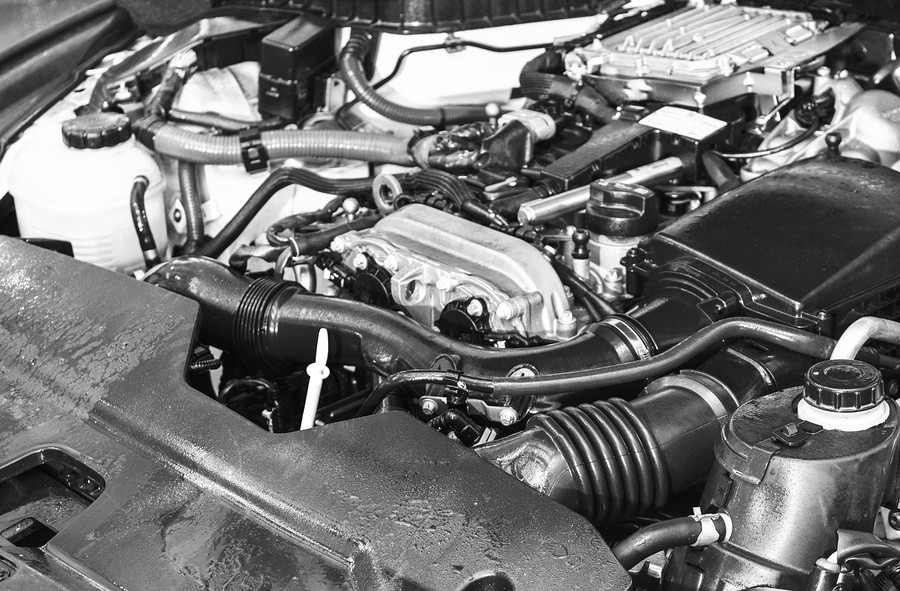
Preventative measures for avoiding future issues with your car's engine
Preventative measures depend heavily on your vehicle's type.
Gasoline engines
For gasoline engines, it's important to strictly follow all manufacturer-recommended maintenance schedules and treatments for your car.
Diesel engines
For diesel engines, you'll want to monitor oil levels closely so they never drop below a quarter full in your car's tank. Also, be sure to have filters changed regularly–this will help avoid potential problems down the road.
Electric vehicles
Most electric vehicles don't need any preventative or maintenance treatments–they're far more efficient than gas-powered vehicles and will require little to no upkeep for between 3-5 years, depending on your driving habits.
Common myths about car engines debunked.
While it's critical to keep learning about your engine's problems, you have to be careful about what type of information you get. There are adheres of myths about engine problems out there. Let's take a closer look at the ten most common myths about car engines debunked:
#1 engine oil is used to lube everything in your engine: FALSE
Engine oil is used primarily for piston lubrication. Therefore, it should only be added when you're changing the oil yourself–it's not necessary most of the time.
#2 you can tell how much life is left in your car's engine by listening to it: FALSE
Trucks and cars make different sounds as they age.
#3 if the check engine light is on, you need to schedule an appointment with a mechanic: FALSE
This light only warns that there's a potential issue going on with your car–it doesn't indicate how serious or costly it will be. It's recommended that you have the issue checked out as soon as possible.
#4 you can tell how much life is left in your car's engine by its mileage: FALSE
High-mileage cars don't necessarily mean that they're worn down and need to be replaced–they could still run for another 150,000 miles.
#5 if your car starts having trouble accelerating, it means there's a serious issue with the transmission: FALSE
There's likely an obstruction or dirty sensor that needs to be cleaned off immediately if this happens. This problem will cost around $100-$200 to fix (if it can even be fixed). However, if ignored, this could eventually lead to major problems with the transmission down the road.
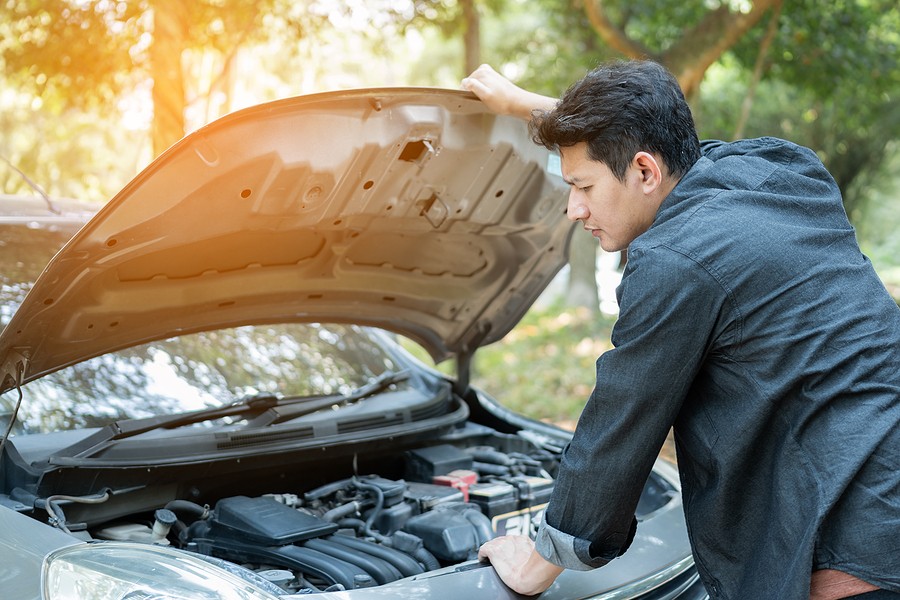
#6 you should change your oil every 3,000 miles: FALSE
This is a myth that was started in the 1920s. Today's vehicles only require an oil change every 7,500-10,000 miles.
#7 you should fill up on premium grade gasoline for cars with high-performance engines: FALSE
There's no difference between regular and premium gas–using premium will not bring any benefits in engine power or fuel economy.
#8 if you own a diesel vehicle, it goes through quality filters very quickly: FALSE
Diesel vehicles go through filters much slower than gasoline vehicles because diesel fuel contains far more impurities than gasoline.
#9 buying used parts to fix your car is cheaper than getting new parts: FALSE
Used parts will cost much more than buying new parts. If you can't afford new parts, you should consider finding a way to get the money–it's cheaper in the long run.
#10 it doesn't matter if your car is overheating and having trouble cooling down: FALSE
If your vehicle's temperature gauge is rising past its recommended level, it means that there's an issue with your engine that needs immediate attention. It could be as simple as needing a new thermostat, or it could be something like a leaking hose (which will require an engine repair)
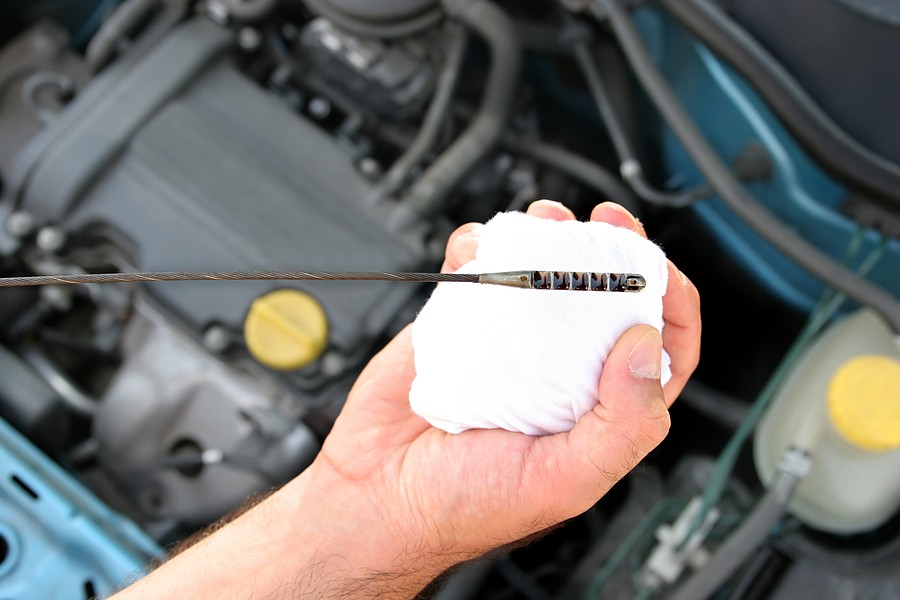
Is it worth fixing engine problems?
Each problem with your engine requires a unique treatment–it's impossible to tell how much it'll cost before you go in for an estimate. To find out what the best choice is for you, fill out this form, and we'll help you understand which route would bring more benefits based on your current situation.
Conclusion
It's important to know how to tell when your engine needs repair. Fortunately, there are many common symptoms of an issue that you can watch out for.
These include overheating and harsh accelerating, as well as difficulty starting or unusual sounds coming from the engine itself. If these symptoms sound familiar, don't hesitate–get in touch with a certified mechanic for help ASAP!
They'll be able to diagnose the problem quickly and give you honest answers about what it will take to fix it so that you can make the best decision possible based on your current situation.



